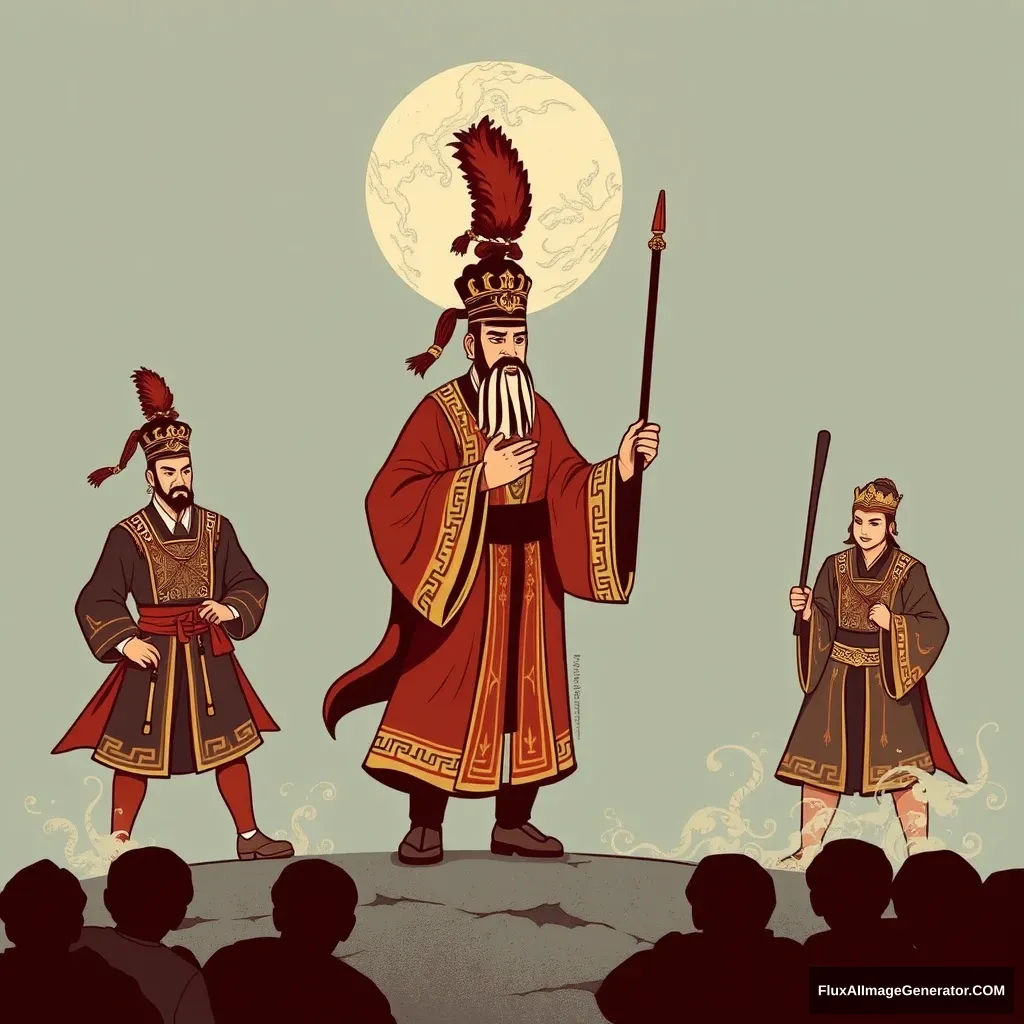Hình Ảnh AI Được Tạo Bởi Flux AI Image Generator

Lời Nhắc
"Why do emperors keep treacherous ministers around, while bosses have sycophants? If you can't understand this sentence, you will never be able to become a boss. Throughout history, whenever a loyal minister achieves great merits, the emperor finds himself in a difficult position; killing him will lead to losing the people's hearts, but not killing him will leave the emperor uneasy, making the situation quite tricky to handle. At this point, the emperor pretends to be confused and tacitly allows the treacherous ministers to take power, then uses their hands to eliminate the loyal ministers, letting the treacherous ones bear all the public resentment. Afterward, the emperor wakes up, punishes the treacherous ministers, and vindicates the deceased loyal ministers. Thus, public discontent is quelled, and the people praise the emperor for his wisdom. Therefore, do not always try to be the clever one; instead, hide your intelligence. The smarter you are, the more you should learn to play dumb. Truly formidable individuals never speak harshly; human nature does not require the truth, just pleasant words. People do not particularly like those who are smarter and more capable than themselves, so you must learn to keep a low profile and know how to act silly."
Phân Tích Hình Ảnh
Phân Tích Cảm Xúc
Kịch Bản Ứng Dụng
Navigating Leadership Dynamics
Mô Tả: Political Strategy for Leaders
Sử Dụng Tiềm Năng: To guide leaders in managing relationships with subordinates while maintaining power.
Handling Employee Relations
Mô Tả: Corporate Management Tactics
Sử Dụng Tiềm Năng: To help managers understand the importance of diplomacy and strategic benevolence among staff.
Understanding Human Behavior in Hierarchies
Mô Tả: Psychological Analysis of Power
Sử Dụng Tiềm Năng: To explore how individuals navigate social dynamics in positions of authority.
Examining Historical Moments of Leadership
Mô Tả: Historical Leadership Case Studies
Sử Dụng Tiềm Năng: To educate future leaders on lessons from historical rulers about power and loyalty.
Dealing with Competitors and Allies
Mô Tả: Conflict Resolution in Organizations
Sử Dụng Tiềm Năng: To provide frameworks for resolving tensions between capable team members.
Phân Tích Kỹ Thuật
Đánh Giá Chất Lượng: Well-articulated and insightful but could benefit from relatable examples.
- Strong analysis of power dynamics
- Effective use of historical context
- Provocative insights into human behavior
- Clarifying examples with modern analogs
- Providing more context on historical references
- Enhancing engagement with more narrative elements